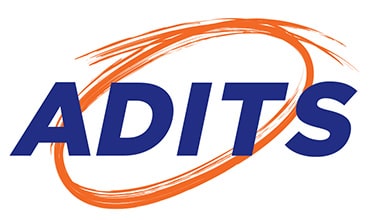In May 2024, Australian eScript provider MediSecure confirmed that they had fallen victim to a sophisticated ransomware attack in 2023. The extent is alarming, as it involved:
- 6.5 terabytes of data
- Personal data belonging to 12.9 million Australians
- Full names, contact information, dates of birth, addresses, Medicare numbers, and prescription records
Prime Minister Anthony Albanese called it a “very significant cyber event.” This highlights the vulnerability of sensitive health information. The attack also underscores the urgent need to enhance cyber security in healthcare, including establishing a robust data backup strategy.
The Importance of Cloud Backups
Cloud backup solutions are a vital part of a comprehensive cyber security strategy, helping organisations like MediSecure mitigate the risks and impacts of cyber attacks.
Not only that but reliable access to quality data can also significantly improve healthcare delivery. The Australian Digital Health Agency stresses the importance of secure and reliable access to patient data with 80% of health consumers expecting innovative digital technologies to improve their healthcare experience.
Yet, some practices still rely on local servers or physical backups, which are more vulnerable to data loss from unforeseen events. Microsoft users might also think that Microsoft 365 built-in backup features are protecting them all the way which is far from the reality as we outline it in our article, Why Microsoft 365’s Built-in Backup Isn’t Enough.
Cloud backups have become the norm for good reasons. Let’s dive into some of those.
Reason 1: Improved Patient Care
“Good collection and use of health data leads to better health care,” affirms the Department of Health and Aged Care. The quality of patient care is strongly impacted when, for example, a doctor cannot access a patient’s complete medical history due to a local server issue.
While healthcare providers still need on-premise servers for their on-premise workload such as their critical line of business apps,an effective backup strategy combines cloud and on-premise backups solutions.
Safeguarding data in the cloud eliminates this risk of wasting precious time in diagnosing and treating patients. By ensuring secure, 24/7 access to patient records from any location with an internet connection, healthcare professionals can provide seamless care, regardless of location or unforeseen events. This improved accessibility translates to faster diagnoses, more efficient treatment plans, and ultimately, better patient outcomes.
Reason 2: Faster Recovery & Less Downtime
Even the most robust IT system cannot stop power outages, natural disasters, cyberattacks, or unexpected events like the CrowdStrike incident from happening. Imagine if a cyclone knocks out power and damages your practice’s servers. How can you access patient records and resume operations?
Downtime in healthcare can have a serious impact on patient well-being and drain your finances. Any healthcare organisation should aim to minimise disruption, especially because downtime can cost thousands per minute. The longer your downtime, the higher the cost.
Cloud backups are an investment in delivering uninterrupted care to your patients. Because your data is stored off-site, you can be back up and running quickly.
In its guide for healthcare providers, the Australian Government itself reminds that “having a recent backup of your data will help you to recover more quickly” in case of an unexpected event, and advocates for offsite backup solutions as well.
Reason 3: Enhanced Compliance with Privacy Act & My Health Records
The World Economic Forum (WEF) urges: “stringent rules and regulations must be put in place to secure sensitive patient data.” Strict adherence with those regulations must therefore be the goal for the healthcare sector.
Cloud backups can be a powerful ally in this fight for compliance with regulations like the Privacy Act (1988) and My Health Record system. Here’s how:
- Data Security: Australian Privacy Principle (APP) 11 in the Privacy Act mandates healthcare organisations to take reasonable steps to protect patient data from unauthorised access, loss, or disclosure. Cloud backups achieve this by employing encryption technologies, rendering patient information unreadable in the event of a breach.
- Access Controls: APP 1.3 of the Act also requires organisations to implement controls over access to personal information. Cloud backups offer granular access controls, ensuring only authorised personnel can view or modify patient data.
- My Health Record: The My Health Record system facilitates secure sharing of patient information between healthcare providers. Cloud backups, with their inherent data security features, seamlessly integrate with My Health Record. This ensures that patients’ sensitive information remains protected throughout the sharing process.
By aligning with these critical provisions, cloud backups empower healthcare professionals to deliver quality care with confidence, knowing their patients’ data is safe and secure. To learn more about compliance, read our article about How IT Services Can Help with Compliance in Your Medical Practice.
Reason 4: Seamless Scalability & Optimal Cost Efficiency
Cloud backups are a smarter solution that will not break the bank for healthcare practices. Traditional on-site servers can become a bottleneck as your practice grows. Upgrading often requires expensive new hardware, which can lead to compatibility issues and downtime.
But cloud storage is inherently scalable. As your data needs increase, your cloud storage can be adjusted. Upfront investments in expensive servers or constant hardware upgrades are not required.
Cloud backups are a cost-effective alternative to in-house servers. Overall, McKinsey & Company found that cloud adoption can cut IT expenses from 30% to 40%.
The Best Time for Cloud Backup Solutions
As healthcare providers, it is crucial to recognise your obligations in safeguarding patient data. Implementing a robust data backup strategy is not just a best practice but a necessity to ensure the continuity of care and compliance with regulations. The recent ransomware attack on MediSecure serves as a stark reminder of the vulnerabilities your industry faces. By adopting cloud backup solutions, you can protect sensitive information, enhance patient care, and ensure rapid recovery from unforeseen events.
At ADITS, we are committed to helping organisations in Brisbane, Townsville, and across Queensland develop comprehensive backup strategies tailored to their unique environments. Secure your data, protect your patients, and ensure your practice’s resilience. Contact us today to learn more about our backup services and how we can support your journey toward enhanced data security.




